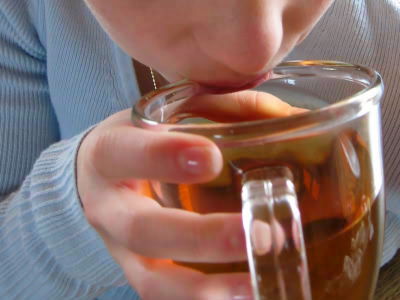Research Finds Beer May Help Increase Intestinal Flora Diversity

The diversity of intestinal bacteria makes the intestines healthy and leads to physical and mental health. Gut microbiota are collectively called 'intestinal flora', and the appearance of bacteria sticking to the wall of the intestine for each type is like a flower field where flowers are planted for each variety. Also called 'intestinal flora', studies have been published pointing out that beer may help improve the diversity of this intestinal flora.
Impact of Beer and Nonalcoholic Beer Consumption on the Gut Microbiota: A Randomized, Double-Blind, Controlled Trial | Journal of Agricultural and Food Chemistry

Beer might actually improve gut health, study finds
The research was conducted by researchers at the University of Nueva de Lisbon in Portugal, the Germano de Sousa Clinical Laboratory Medicine Center, and the Agricultural and Food Technology Support Center, and was published in the peer-reviewed journal of Agricultural and Food Chemistry. it was done.
The research team asked male subjects to drink 330 ml of non-alcoholic beer with 0% alcohol and lager beer with 5.2% alcohol daily for 4 weeks, and collected blood and stool samples before and 4 weeks after the start of the experiment. Did.
Examination of the sample revealed that the intestinal flora was diversified after the experiment compared to before the experiment. The results are common to both non-alcoholic beer and beer groups, indicating that alcohol is irrelevant to this experiment.

According to research, the effects of beer are thought to be due to many factors, including polyphenols. Polyphenols are plant-derived nutrients and contain antioxidants. It is also a by-product of intestinal bacteria after digesting dietary fiber.
Ana Faria, one of the lead authors of the paper, who studies nutrition and metabolism at Nueva de Lisbon University School of Medicine, said: 'We have moderate beer consumption as part of a balanced diet. We want people to understand that it can be used in strategies to improve our gut flora. '
Tim Spector, a professor of genetic epidemiology at King's College London, who did not participate in the study, said, 'We welcome such rare studies, but we are skeptical of the results unless there is a large-scale reproduction study. '. As Professor Specter pointed out, Feria's experiment was a small one involving 22 men.
Professor Specter also points out that there is no control group. In this experiment, the control biometric index for 'after drinking beer for 4 weeks' was the data 'before participating in the experiment', but it is possible that the participants were people who drank beer on a daily basis before that. There is sex.
In addition, the lager beer used in the experiment is relatively low in polyphenols and low in fiber, so it's unlikely that a four-week drink will have a noticeable effect, Specter points out.
Faria said she was interested in whether beer and other fermented foods could be a drug for the disease of gut microbiota that upsets the balance of the gut flora, and wants to deepen research on non-alcoholic beer. It shows the intention.
Related Posts:







